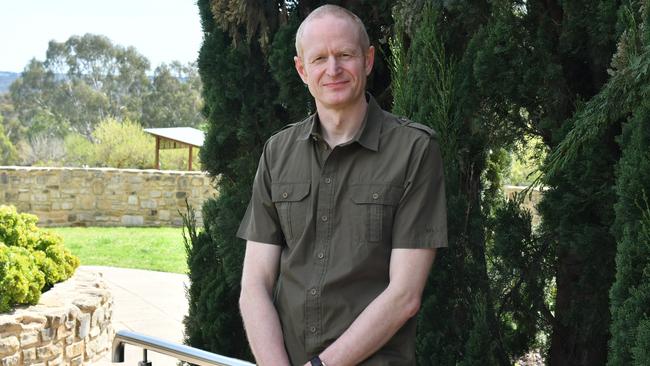Flinders University leads first study into long-term health of sperm donor-conceived adults revealing higher risk of auto-immune diseases and allergies
Donor sperm is known to have some effects on newborns but now an SA study has found there could also be health consequences in adulthood.

SA News
Don't miss out on the headlines from SA News. Followed categories will be added to My News.
Adults who were conceived using donor sperm are seven times more likely to be diagnosed with type 1 diabetes and about twice as likely to have thyroid disease, acute bronchitis and sleep apnoea, new Adelaide research reveals.
The incidence of allergies also increases from 35 per cent to 45 per cent.
Flinders University PhD candidate Damian Adams led the study that compared the health of 272 donor-conceived volunteers with 877 people who were conceived naturally.
The results confirmed his suspicions that the use of donor sperm had unforeseen long-term health consequences.
“We know that babies born from donor sperm are more likely to be born at low birth weight, which is under 2500g, and they’re also more likely to be born with birth defects,” Mr Adams said.
“Conditions such as low birth weight and (the maternal health condition) pre-eclampsia are associated with adverse outcomes in adulthood, so we had the idea that potentially there might be something here, but we just didn’t know and this is the first study to look at it.”
Most volunteers in the study came from Australia, the US, the United Kingdom, Belgium and the Netherlands.
Those conceived by sperm donor were matched for age, sex, height, smoking habits, alcohol consumption, exercise and fertility to adults of “spontaneous” conception.
The research compared the incidence of physical health problems and found statistically significant differences in six of the 109 outcomes considered for the study.
The researchers believe some kind of immune reaction is to blame, as the majority of these conditions have some immunologic basis and it is known women are more likely to tolerate sperm from men they know.
“Pre-eclampsia is an immune mediated response and we know from the general population, if women have a new partner or they have a period of short sexual cohabitation, they’re more likely to experience pre-eclampsia, so basically they haven’t gotten used to the novel antigens from the sperm,” Mr Adams said.
“But if they’re exposed for a period of time, they don’t have as significant an immune reaction.”
The paper “Self-reported physical health status of donor sperm-conceived adults” is published in the Journal of Developmental Origins of Health and Disease.
Latest figures show there could be up to 60,000 people conceived through donors in Australia.

